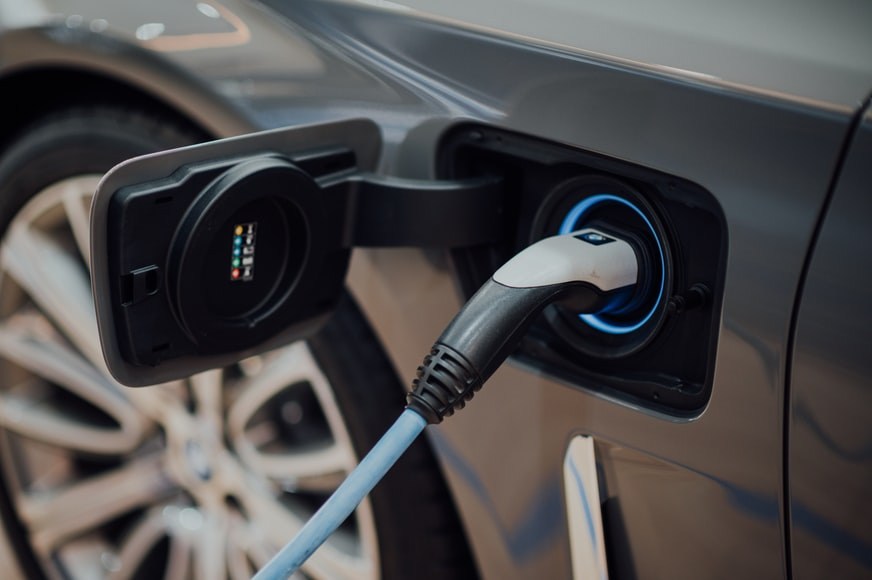The European Commission announced last week the results of the first call for large-scale projects aiming at bringing breakthrough technologies to the market to decarbonise the economy.
In total, the EU will invest over €1.1 billion in seven innovative projects under the Innovation Fund. The grants will support projects in energy-intensive industries, hydrogen, carbon capture, use and storage, and renewable energy. The projects are located in Belgium, Italy, Finland, France, the Netherlands, Norway, Spain and Sweden.
“Innovation is crucial to provide the solutions we need this decade to keep 1.5 degrees within reach”, said Executive Vice-President Frans Timmermans, returning from COP26, the climate change conference in Glasgow, and responsible for the European Green Deal.
“Together with sharp emissions reductions, innovation gives us a path towards the Paris Agreement. Today's decision (16 November) gives concrete support to clean tech projects across Europe and enables them to scale up game-changing technologies that support and speed up the transition to climate neutrality.”
The seven projects were selected for funding under the first Innovation Fund call for large-scale projects, i.e. projects with total capital costs above €7.5 million.
They were evaluated by independent experts for their ability to reduce greenhouse gas emissions compared to conventional technologies and to innovate beyond the state-of-the-art while being sufficiently mature to enable their quick deployment. Other selection criteria included the projects' potential for scalability and cost effectiveness.
The selected projects cover a wide range of relevant sectors to decarbonise different parts of Europe's industry and energy sectors, such as chemicals, steel, cement, refineries, and power and heat. All projects are either already part of industrial hubs or kick-start decarbonisation clusters of interconnected industries, according to the Commission.
The projects are now starting to prepare the individual grant agreements with the European Climate, Infrastructure and Environment Executive Agency (CINEA), the implementing body of the Fund. A second call for large-scale projects has already been launched with a deadline of 3 March 2022. All the projects that were not successful in the first call are encouraged to re-apply.
Three hydrogen projects
Hydrogen has been described as the energy of the future which will replace fossil fuels. However, the process of splitting water to oxygen and hydrogen requires energy and there is not yet sufficient renewable energy for that. The storage of hydrogen is also a challenge.
The Commission has estimated that billions of euros in investments will be needed in investments in the comings decades until hydrogen can become a significant part of the EU energy mix. Three of the selected projects are directly connected to hydrogen.
A project in Sweden aims to entirely eliminate greenhouse gas emissions from steel production by using renewable hydrogen in Gällivare and Oxelösund.
A new facility will be established for first-of-a-kind hydrogen-based direct reduction in Gällivare, with 500 MW fossil-free electrolysis. Two blast furnaces are replaced by an electric furnace in Oxelösund. The project will show the viability of technologies needed to melt hydrogen-reduced iron into crude steel.
Another project, in Finland, will demonstrate two ways of producing clean hydrogen at a refinery in Porvoo, through renewable energy and by capturing CO2 and permanently storing it in the North Sea. The project will scale the production of green hydrogen to help make it a viable transportation fuel itself. The novel water electrolysis technology applied by the project has a capacity of 50 MW.
The third project, in Belgium, aims at reducing the emissions in the production of hydrogen and chemicals and will develop a complete carbon capture, transport and storage value chain in the Port of Antwerp.
The CO2 capture layout is described as the first-of-its-kind multi-feed scheme, which optimises and integrates CO2 capture and purification from different production units, including two hydrogen plants. Liquid CO2 vessels will be engineered and constructed in the project timeframe for transport to the storage sites in the North Sea.
Hydrogen innovation in Israel
At the recent Smart Mobility Summit in Tel Aviv, two Israeli scientists were awarded the Eric and Sheila Samson Prize for research in hydrogen technology. Professors Avner Rothschild and Gideon Grader from Technion, Israel’s Institute of Technology, were awarded the prize for inventing a novel water splitting technology that provides hydrogen at unprecedented efficiency.
The prize, totalling one million US dollars, is considered to be the world’s largest monetary prize awarded in the field of alternative fuels and smart mobility.
Is hydrogen the fuel of the future which will replace fossil fuels?
“We believe that the answer to this question is definitely yes”, Professor Grader at the Chemical Engineering department of Technion told The Brussels Times. “However, the transformation will be gradual, spanning over several decades.”
How does it work?
“Available electrolysis technologies present challenging limitations for scale-up and cost-effectiveness due to complex electrolytic cell construction and significant energy losses,” he explained. “To overcome these limitations, we developed a transformative method, called E-TAC, to decouple the process so that hydrogen and oxygen are produced in two separate steps.”
“The decoupling eliminated the need for membranes and sealing, paving the way to membrane-free electrolysis architecture. Our invention greatly simplifies cell construction, enabling efficient, high-pressure hydrogen production in compact, easy to scale-up systems.”
The tests show that hydrogen can be produced at a at ultrahigh efficiency (ca 99%) with no signs of degradation, he explained. “These benchmarks outperform state-of-the-art electrolyzers that operate at typical efficiency below 75%.” The process was patented and published in 2019 in a seminal article in the prestigious journal Nature Energy.
The two professors founded a company in 2018 to commercialize the E-TAC water electrolysis and provide ultrahigh efficiency, low-cost green hydrogen at scale. The company, H2Pro, currently employs over 70 scientists and engineers. Its investors include leading stakeholders in green hydrogen and other clean tech technologies.
The company plans to start installing pilot systems at potential customers sites in 2023. Actual sales of multi megawatt systems are planned for 2024.
M. Apelblat
The Brussels Times

